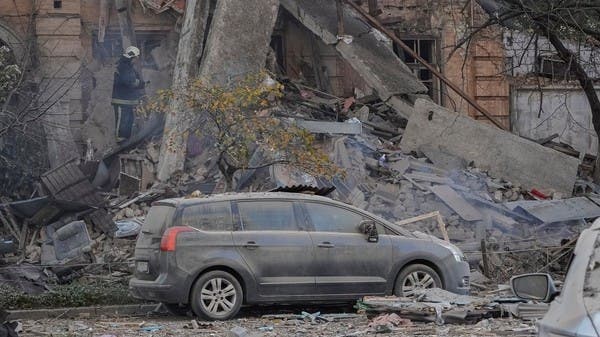Today, Wednesday, the Russian military operation in Ukraine enters a new day as Russian army units try to establish control and strike positions of Ukrainian forces, while Kiev is trying Restoration of its lands with material and military aid from the West.
In the latest development, a baby was killed in a rocket attack on a maternity ward at a hospital in Zaporizhia, southern Ukraine, Ukrainian authorities announced on Wednesday. Rescuers pulled the child’s mother and a doctor alive from the rubble.
Oleksandr Starukh, the governor of Zaporizhia, said the missiles used in the attack were Russian.
In context, British intelligence said Russia has not carried out any drone strikes against Ukraine since Nov. 17, adding that Russia is likely to run out of Iranian-made drones and will likely look for more.
On the ground, the Crimean peninsula, which is under Russian control in Ukraine, was attacked by drones, while it was Russian forces are on alert As announced by the authorities appointed by Moscow.
The governor of the Sevastopol administrative region in Crimea said on “Telegram” that the region was attacked by drones, and explained that two drones “have been shot down so far”. He confirmed that no civilian infrastructure was damaged and called on residents to remain calm.
Ukraine’s government on Tuesday urged its citizens to save energy amid relentless Russian attacks that have halved the capacity of the country’s electricity grid, as the United Nations World Health Organization warned of a humanitarian catastrophe in Ukraine this winter.
Authorities said millions of Ukrainians, including residents of the capital, Kiev, could experience power outages until at least the end of March as a result of the rocket attacks, which have caused “enormous” damage, according to Ukraine’s National Energy Corporation.
Ukraine has experienced unusually mild temperatures this autumn, but the temperature has started to drop below freezing and is forecast to reach minus 20 degrees Celsius or even lower in some areas during the winter months.
Russia is targeting Ukraine’s energy facilities after a series of battlefield setbacks, including the withdrawal of Russian forces from the southern city of Kherson to the eastern bank of the Dnipro River, which runs through the center of the country.
“Streamlining electricity remains of great importance,” Prime Minister Dennis Shmyhal said via the ‘Telegram’ application on Tuesday. He added that there are planned power outages in all regions and in some situations it is possible to cut off electricity due to emergency conditions as frost attacks have started and electricity consumption is increasing.
Volodymyr Kudritsky, head of the national power company, said virtually no power plants remained intact, but denied the need to evacuate civilians.
The World Health Organization said hundreds of hospitals and health facilities in Ukraine lack fuel, water and electricity to meet people’s basic needs.
“The Ukrainian health system is facing its darkest day of the war. Having suffered more than 700 attacks, it is now a victim of the energy crisis,” said Hans Kluge, WHO regional director for Europe, in a statement after having visited Ukraine.
Workers are rushing to repair damaged energy infrastructure, according to Sergei Kovalenko, chief executive of Yasno, which supplies Kiev.
“Stock up on clothes and blankets that provide warmth, and think about options that will help you weather a prolonged power outage,” Kovalenko said.
Moscow denies deliberately targeting civilians as part of its military operation “to rid Ukraine of nationalists and protect Russian-speaking communities”.
Kiev and the West portray Russia’s actions as an unwarranted colonial takeover of territory in the neighboring country it once controlled as part of the Soviet Union.
The nine-month war killed tens of thousands of people, displaced millions and inflicted enormous damage on the global economy. The Organization for Economic Co-operation and Development said the worst global energy crisis since the 1970s could trigger a severe economic downturn, with Europe hit hardest.


